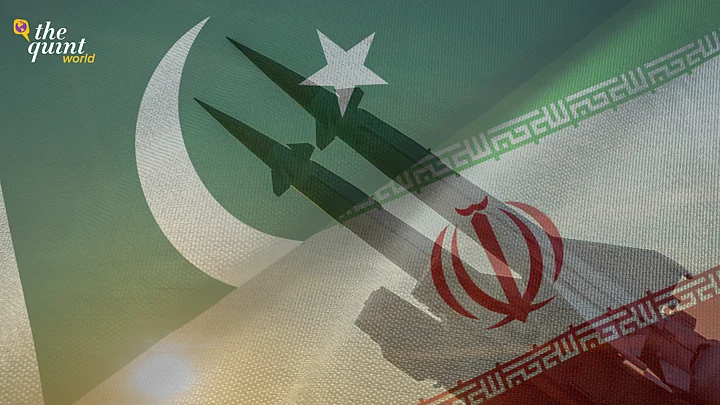After warning of "consequences" over the attack on reported Jaish al-Adl (Army for Justice) militant bases in Pakistan's southwestern Balochistan province, Islamabad has struck back at targets in Iran on Thursday, 18 January as part of "Operation Marg Bar Sarmachar."
In a statement, Pakistan's Ministry of Foreign Affairs said that the country "undertook a series of highly coordinated and specifically targeted precision military strikes against terrorist hideouts in Siestan-o-Baluchistan province of Iran," killing an unspecified number of "terrorists."
Islamabad said that the action is a "manifestation of Pakistan’s unflinching resolve to protect and defend its national security against all threats," and added that they "will continue to take all necessary steps to preserve the safety and security of its people which is sacrosanct, inviolable and sacred."
What Followed After the Attacks?
In a phone call with his Iranian counterpart, Pakistan's foreign minister Jalil Abbas Jilani, on Wednesday, underscored that the attack was "not only a serious breach of Pakistan's sovereignty but was also an egregious violation of international law and the spirit of bilateral relations" between the two countries.
Pakistan also recalled its ambassador from Iran and asked Tehran's envoy, who was on a visit back home, not to return to Islamabad since the air strikes. It added that all "all high level visits which were ongoing or were planned" between the two countries have been suspended.
Iran foreign minister Hossein Amir-Abdollahian, however, insisted his country's armed forces, Iran's Islamic Revolutionary Guards Corps (IRGC), launched the attacks that had targeted the "Iranian terrorist group" Jaish al-Adl in Pakistan.
"None of the nationals of the friendly and brotherly country of Pakistan were targeted by Iranian missiles and drones," he said in Davos, Switzerland, on the sidelines of the World Economic Forum.
The Timing of Tensions
Importantly, the attacks come at a time that the Jaish al-Adl, which remains blacklisted by Iran as a “terror” group, claimed responsibility for a police station attack in the southeastern border province of Sistan-Balochistan, which killed 11 Iranian security personnel.
The strikes have also come at a time when there is already tension brewing in the region of the ongoing conflict between Israel and Palestinian militant group Hamas, and other Houthi rebel attack in the Red Sea and surrounding regions.
On 15 January, Iran fired missiles into Iraq at what it called an Israeli “spy headquarters” near the US Consulate compound in the city of Irbil, AP reported.
The reprisal attacks by Iran in response to the Kerman incident appear to lack a direct connection to the ongoing Gaza war. However, they coincide with a period of increased regional instability resulting from the Gaza conflict.
India's Comment
India said that Iran's missile attack on Pakistan is an issue that "concerns only those two nations".
"This is a matter between Iran and Pakistan. So far as India is concerned, we have an uncompromising position of zero tolerance towards terrorism. We understand actions that countries take in their self-defense," the Ministry of External Affairs said in a statement.
(At The Quint, we question everything. Play an active role in shaping our journalism by becoming a member today.)
